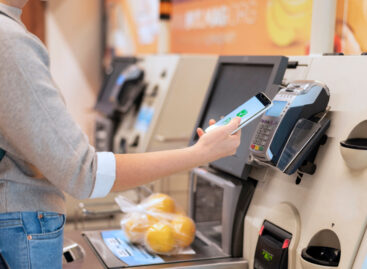The rise of robotic cash registers in Hungary
Self-service checkouts are gaining ground in Hungarian stores, while they continue to receive a mixed reception from customers. Although many people still trust traditional cashiers more, according to data from major supermarket chains, the use of self-service checkouts is constantly increasing.
Factors behind the growth
 Several factors are contributing to the rise of robotic checkouts:
Several factors are contributing to the rise of robotic checkouts:
More efficient operation: Previously, a cashier managed a single checkout, while now he can supervise up to 4-8 self-service checkouts.
Faster shopping process: The payment process becomes smoother even during peak periods.
Workforce realignment: Some of the employees working at checkouts perform other tasks, such as helping with product replenishment.
The largest players and the prevalence of robotic checkouts
According to data from Pénzcentrum, Lidl currently has the most self-service checkouts in Hungary, with 1,137 units in January 2025. Tesco follows closely behind with 1,028 self-service checkouts, while Spar operates 900. Auchan operates 350 and Penny operates about 60 self-service checkouts.
Interestingly, while most chain stores are continuously expanding the number of self-service checkouts, Aldi still has no plans to introduce such a system, citing that it can also provide fast service with traditional checkouts.
Customer opinions
The reception among customers is mixed. According to Lidl and Tesco, more than 40% of customers in their stores choose self-service checkouts. Based on Auchan and Spar data, almost half of customers prefer this payment method, while the proportion is lower in rural stores.
Related news
Related news
The Store of the Future opens again at the SIRHA Budapest exhibition! (Part 3)
🎧 Hallgasd a cikket: Lejátszás Szünet Folytatás Leállítás Nyelv: Auto…
Read more >New country director at the helm of JYSK Hungary
🎧 Hallgasd a cikket: Lejátszás Szünet Folytatás Leállítás Nyelv: Auto…
Read more >








